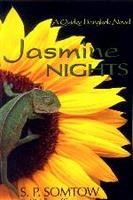All of us are asked, too often, what it is that we do. When I am brave enough to answer honestly, I say that I am a reader—that I read. The reactions I get range from amused to perplexed to enraged. Tough enough for writers and artists to be taken seriously, but though it may seem sad to many that some people have such unprofitable addictions, still one can be a writer or artist—perhaps an ill-chosen life, but a real one. But to claim to be a reader! Might as well say time-waster, idler. “Come on, really, do you mean you are a teacher or aspiring writer?” Though I happen to be a teacher as well as a reader, I sometimes try to persevere. “No, I am a reader.”
No wonder when I ran across this little volume of autobiographical essay, I was instantly intrigued. Though I seldom aspire to being a writer (and am much more interested in what I can read than what I can write), here was a book that I wished I had written—one that I had thought of writing, though certainly not with the wit and skill that Schwartz has. Here is a reader who boldly announces her addiction to works of the imagination, and who admits, proclaims: “With barely a twinge of conscience, I hurl down what bores me or doesn’t give what I crave: ecstasy, transcendence, a thrill of mysterious connection.” Should one read in accordance with duty or want? And again, she answers as I have so often answered, ‘follow your wants.’
I noticed early on that when I had a piece of duty-reading (or writing) that stood between me and reading for pleasure, I often simply stopped reading! So, in graduate school, I made what I thought was a bold move; I would consider all reading good, all a part of my work. It worked like magic as my reading increased and increased in such a way that I even did more duty-reading almost as accident or afterthought. As Schwartz says, “There are after all so many delectable books in the world.”
But, you might be thinking (and we readers so often hear), reading is an escape from living. Her answer is bold: “It didn’t replace living; it infused it, till the two became inextricable, like molecules of hydrogen and oxygen in a bead of water.” And continuing, “How are we to spend our lives, anyway? That is the real question. We read to seek the answer, and the search itself, the task of a lifetime, becomes the answer.”
In only one way is her answer less radical than mine. Still, in spite of the fact that she writes for a living, that she must read in order to write, she cannot bring herself to read in the morning.
Never mornings—even to one so self-indulgent, it seems slightly sinful to wake up and immediately sit down with a book—afternoons only now and then. In daylight I would pay what I owed the world. Reading was the reward, a solitary, obscure, nocturnal reward. It was what I got everything else (living) out of the way in order to do.
I cant tell you how much I feel I have gotten from this author, about reading, about writing, about living. “...writing seems less a craft than a quality of mind and discernment, a rarefied focusing.” Yes, a focusing that allows some wonderfully gifted people to really see, to dis-cover, to bring out of concealment. Schwartz is like an american Iris Murdoch. To read what she has to say about whether it is best, finally, to read from duty or from want is to be at once amused and awakened. She is so wonderfully bright, so witty, her words so flowing and water-like, but always with a serious current.
Let me touch on just a couple more themes she raises and that I have thought of so often in my life as a reader. Why, I have often asked myself, am I so compelled to read living authors, so convinced that the academic preference for (usually dead) white males is such a profound mistake. Is it just a taste for the new, the modern? No, says Schwartz.
The pressure to read the living is moral as well as social. We must know our own times, understand what is happening around us. The more purposeful a writer is, the more her work defines a particular connection to her time and surroundings. Or, if defines sounds a bit deadly, lets say shows, for no writer consciously set out to do it (or does so at her peril). The connection is evident in the writing to the degree that it is strong in the writer. If she does not feel context—time, place, spirt—pressing in on her like humidity, the work will be ephemeral and self-reverential, brittle as a fallen leaf.
Reading is, indeed, as I have always thought, one of the genuine entrances into the larger world, the social world, the political world—away from the merely conventional and conservative, and its thrust is finally away from self (no matter how selfish it may seem to be curled up with a book).



